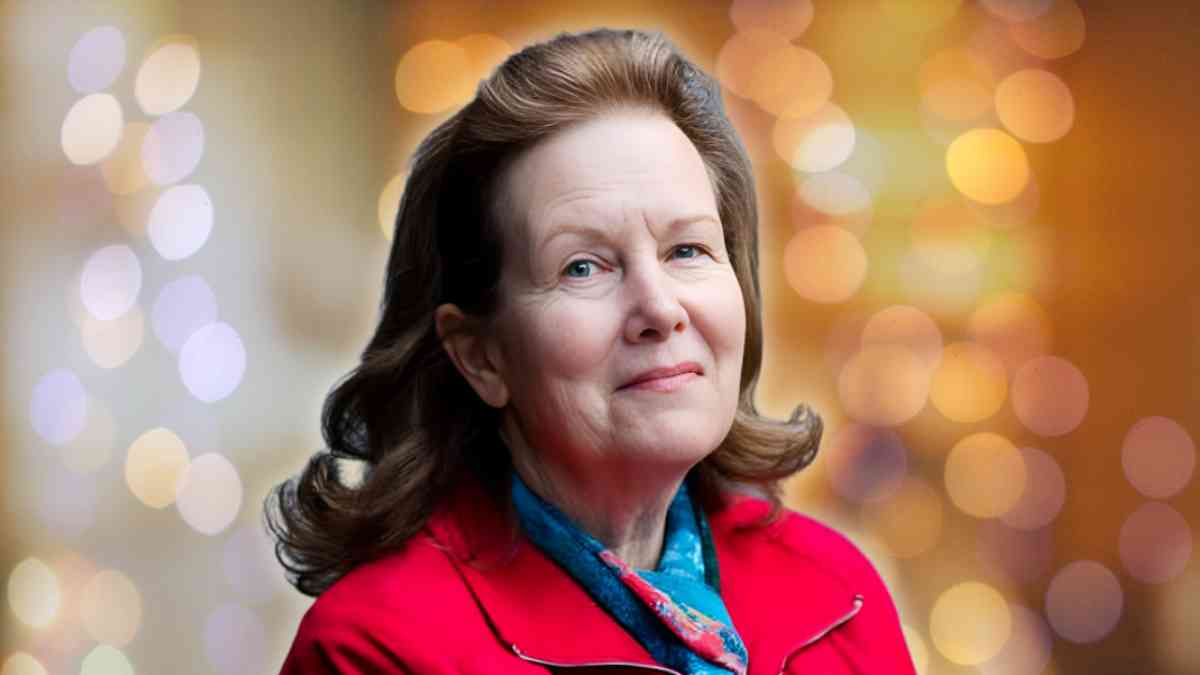Lee McGeorge Durrell: The Enduring Legacy of a Wildlife Champion

Lee McGeorge Durrell is a name that resonates deeply in the world of conservation, zoology, and natural history. As the devoted wife and intellectual partner of the legendary Gerald Durrell, Lee forged her own legacy in wildlife preservation, education, and public outreach. Her remarkable journey from the academic halls of Duke University to the remote jungles of Madagascar and the headquarters of the Durrell Wildlife Conservation Trust in Jersey is a testament to her enduring commitment to nature. This article explores her early life, her pivotal role in global conservation, her media contributions, and the powerful influence she continues to exert in the realm of environmental advocacy.
Early Life and Academic Pursuits
Born on 7 September 1949 in Memphis, Tennessee, Lee McGeorge displayed an early fascination with the natural world. Unlike many children, her interests were not fleeting but deeply rooted in a curiosity about how animals lived, communicated, and interacted with their surroundings. She attended Bryn Mawr College where she majored in philosophy, a subject that laid the groundwork for her analytical and thoughtful approach to the ethical treatment of animals.
After completing her undergraduate studies, Lee pursued a doctorate in Zoology at Duke University. It was there she became immersed in the study of mammalian and avian vocalisation—a field that demanded rigorous scientific observation and a profound sensitivity to the subtleties of animal behaviour. Her academic achievements were not only notable but foundational to the future that lay ahead.
Meeting Gerald Durrell: A Transformational Encounter
Lee’s life took a dramatic turn in 1977 when Gerald Durrell, already a renowned naturalist and founder of the Jersey Wildlife Preservation Trust, visited Duke University as a guest speaker. The meeting between the two minds was not only serendipitous but immediately transformative. Sharing a mutual passion for endangered species and the ethical conservation of wildlife, the pair formed a deep personal and intellectual connection.
They married in 1979, and Lee soon relocated to the Channel Island of Jersey where she became an integral part of Gerald’s growing conservation empire. More than a supportive spouse, Lee became a co-author, researcher, and fellow adventurer, embarking on expeditions and conservation missions that would cement her reputation in her own right.
Becoming a Conservation Powerhouse
After marrying Gerald, Lee Durrell immersed herself in conservation work, proving herself as a hands-on field scientist and an exceptional communicator. She participated in numerous field missions to regions such as Madagascar, Mauritius, and Russia—places where ecosystems were teetering on the brink and species were vanishing rapidly.
In Madagascar, Lee’s efforts to save the ploughshare tortoise were so impactful that locals affectionately dubbed her “Mother Tortoise”. She advocated not just for the protection of species but also for community education and sustainable practices, recognising that successful conservation cannot occur without the involvement of local populations.
When Gerald passed away in 1995, Lee inherited his legacy not just in name but in responsibility. She became the Honorary Director of the Durrell Wildlife Conservation Trust, where she guided strategic planning, outreach programmes, and ecological research, ensuring the trust’s evolution into a modern, global conservation leader.
Writing and Television: Making Science Accessible
Lee McGeorge Durrell’s commitment to nature extends beyond fieldwork. She has consistently sought to make the science of conservation accessible to the public through writing and broadcasting. Alongside her husband, she co-authored several books, including the acclaimed “Durrell in Russia” and “A Practical Guide for the Amateur Naturalist”.
These works stand out for their engaging style, blending scientific accuracy with personal anecdotes and storytelling. Lee’s writing is clear, passionate, and inclusive, welcoming both experts and laypeople into the world of ecology and wildlife care.
Her on-screen presence was equally effective. Lee co-hosted several documentaries, most notably “Ourselves and Other Animals”, where her warmth, clarity, and conviction shone through. Her ability to connect with viewers allowed complex scientific issues to be presented in a relatable and inspiring way.
A Voice for Ethical Conservation
Throughout her career, Lee Durrell has consistently championed ethical practices in conservation. She has often spoken about the moral imperative to protect all forms of life—not merely for human benefit but for the intrinsic value of biodiversity itself.
She has publicly criticised trophy hunting, poorly run zoos, and exploitative animal tourism, advocating instead for sanctuaries, ethical breeding programmes, and genuine habitat preservation. Her voice in these debates is both respected and influential, especially given her deep-rooted experience and academic background.
One of her most powerful philosophies is the idea that humans are stewards, not owners, of the planet. This belief has informed all her actions, from public education campaigns to on-the-ground rescue operations.
Consultant on ‘The Durrells’ and Cultural Influence
The ITV drama series “The Durrells”, which aired from 2016 to 2019, introduced a new generation to the eccentric, endearing Durrell family. Lee Durrell served as a consultant on the series, ensuring that the portrayal of Gerald and his family, especially their attitudes toward animals and nature, was faithful and respectful.
Her involvement was not just technical but deeply personal, as the show offered a chance to renew interest in the conservation ethos that Gerald espoused—and which she continues to carry forward. As a result, the series inspired widespread public interest in the Durrell Wildlife Conservation Trust and its mission.
Awards and Honours
Lee McGeorge Durrell’s tireless work has not gone unrecognised. In 2011, she was appointed a Member of the Order of the British Empire (MBE) for services to conservation. The honour highlighted her decades of leadership, advocacy, and scientific contribution.
She has also received honorary doctorates and awards from conservation and academic institutions around the world. These accolades, however, pale in comparison to the tangible outcomes of her work—the revival of endangered species, the establishment of protected areas, and the education of thousands of conservation professionals globally.
Continuing the Mission
Even in her later years, Lee Durrell remains active in the world of conservation. She mentors young biologists, speaks at international conferences, and supports the strategic vision of the Durrell Wildlife Conservation Trust.
Her efforts have also increasingly focused on the intersection between conservation and climate change, understanding that environmental protection now requires a broader, integrated approach. In speeches and essays, she has emphasised the role of conservation in building climate resilience, protecting not just species but the ecosystems on which all life depends.
Personal Philosophy and Legacy
What makes Lee McGeorge Durrell exceptional is not just her scientific knowledge or her media presence, but her unwavering dedication to a cause greater than herself. She embodies a blend of intellectual rigour, compassionate activism, and public communication that is all too rare.
Her legacy is living—not just in the archives of scientific journals or the honours she has received, but in the animals that now have a chance at survival, in the minds of the people she has educated, and in the institutions she has strengthened.
The story of Lee McGeorge Durrell is not one of mere support for a famous husband. It is the story of a formidable woman who carved out her own place in the world of science and conservation. Her journey continues to inspire, offering a model of how dedication, humility, and courage can effect lasting change.
Conclusion
Lee McGeorge Durrell stands as one of the most influential conservationists of our time. Through her academic prowess, field expertise, eloquent writing, and passionate advocacy, she has shaped the global conversation around endangered species and habitat preservation. More than a figure behind a famous man, she is a force of nature in her own right—a guardian of biodiversity and a beacon for future generations.



